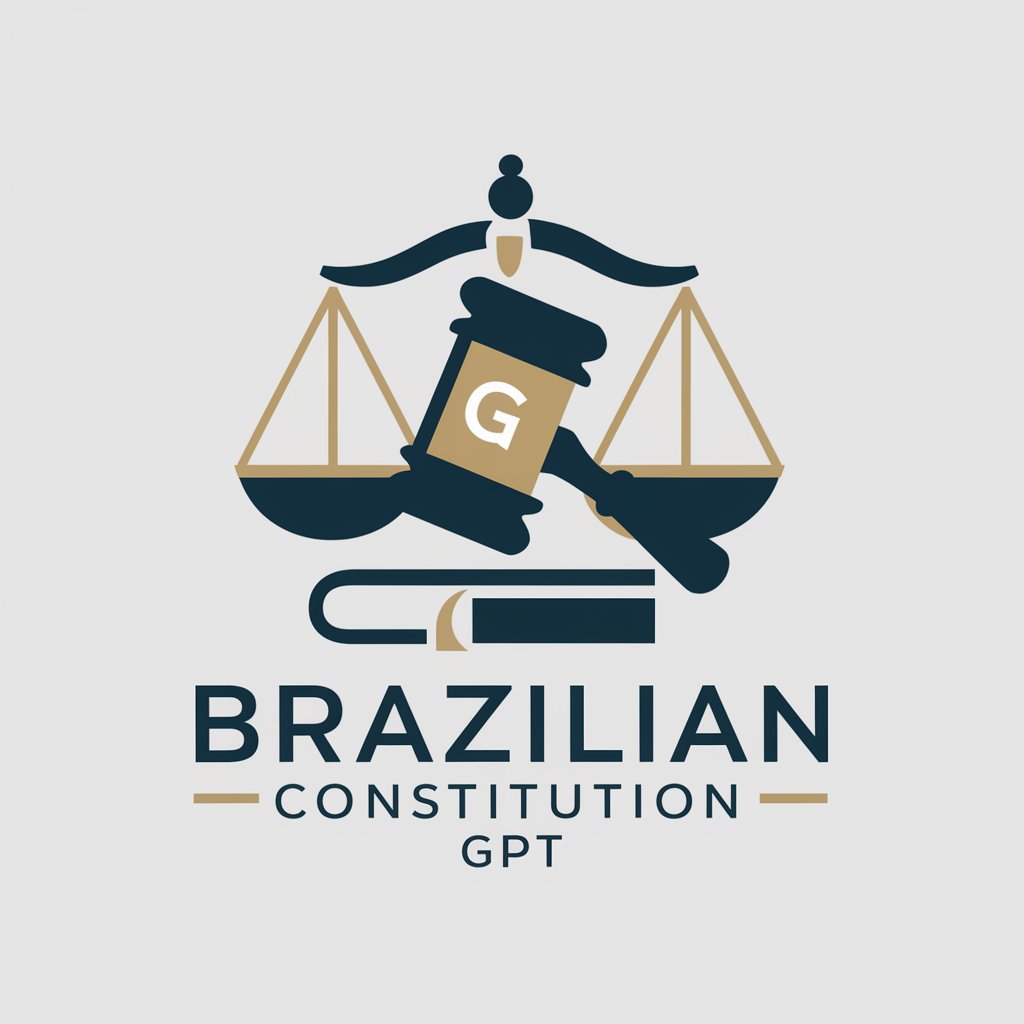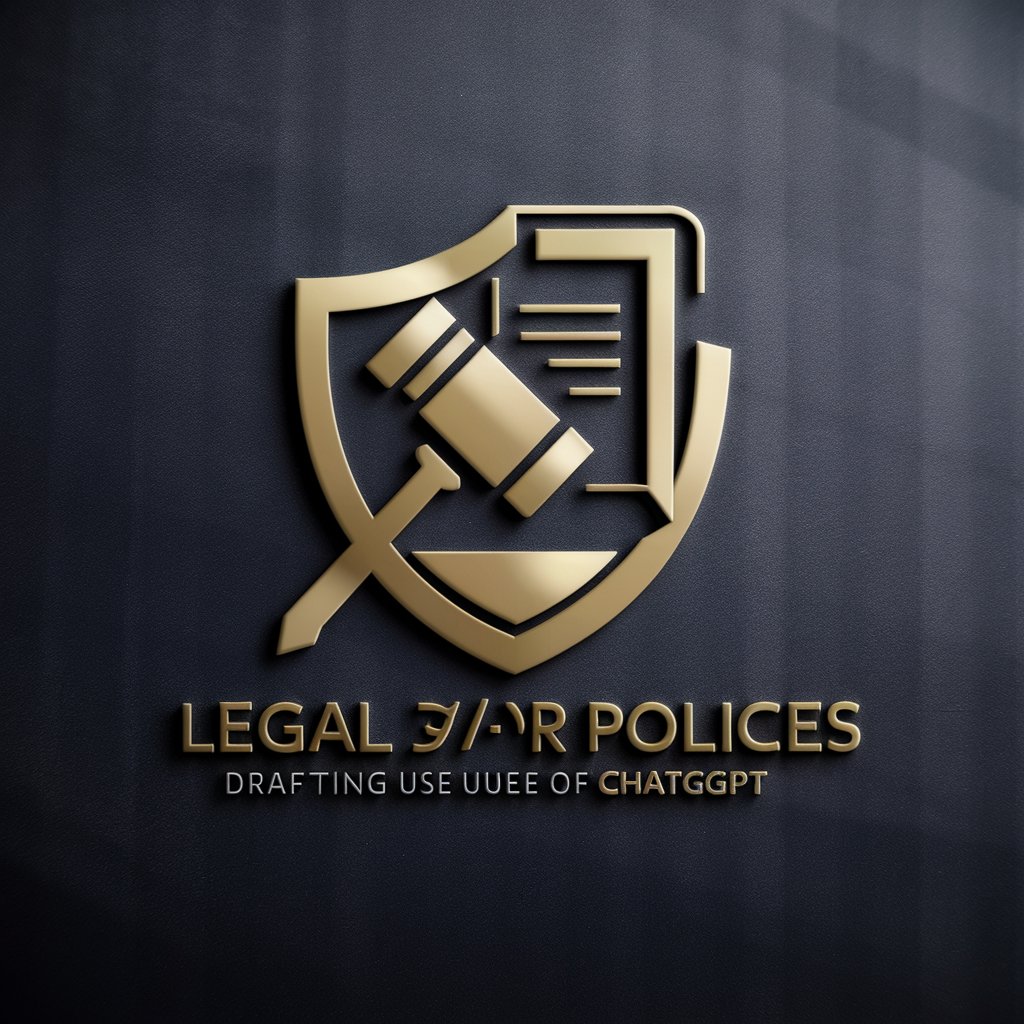Brazilian constitution - Brazilian Constitution Expertise

Welcome to the Brazilian Constitution GPT.
Navigate Brazil's Constitution with AI Precision
Analyze the principles of the Brazilian Constitution.
Discuss the role of the judiciary in Brazil's legal framework.
Explain the amendments process in the Brazilian Constitution.
Compare Brazil's Constitution with another country's legal framework.
Get Embed Code
Overview of the Brazilian Constitution
The Brazilian Constitution, promulgated in 1988, establishes Brazil as a Federative Republic, formed by the indissoluble union of States, Municipalities, and the Federal District. It's grounded in the principles of democracy, where sovereignty resides with the people who exercise their power through elected representatives or directly, as per the Constitution. The Constitution is characterized by its detailed nature, covering aspects ranging from fundamental rights to the organization of the state, its functions, and the roles of various institutions. Powered by ChatGPT-4o。

Principal Functions of the Brazilian Constitution
Establishing Fundamental Rights and Guarantees
Example
Rights such as freedom of speech, equality before the law, and religious freedom
Scenario
Citizens invoke these rights in legal proceedings to protect their freedoms and seek justice.
Organizing Government Structure
Example
Defining roles and powers of the Executive, Legislative, and Judicial branches
Scenario
Ensuring checks and balances between different branches of government and outlining their specific duties and limits.
Guiding National Policies
Example
Outlining guidelines for educational, environmental, and economic policies
Scenario
Formulating and implementing policies by government entities at various levels, adhering to constitutional directives.
Target User Groups of the Brazilian Constitution
Legal Professionals
Lawyers, judges, and legal scholars use it as a foundational legal document for interpreting laws and making legal arguments.
Government Officials
Policymakers and government administrators refer to it for guidance on governance, policy formation, and administration.
Citizens and Civil Society
Citizens and NGOs use the Constitution to understand their rights and responsibilities, and to advocate for social and political causes.

Guidelines for Using Brazilian Constitution
1
Visit yeschat.ai for a free trial without login, also no need for ChatGPT Plus.
2
Familiarize yourself with the Brazilian Constitution to ensure accurate queries. Understanding the basic structure and content of the Constitution will enhance interaction.
3
Pose specific questions or requests related to the Brazilian Constitution. This could include inquiries about constitutional amendments, rights, or duties.
4
Use the provided information for academic research, legal analysis, or general knowledge. The tool is designed to support diverse applications.
5
For best results, phrase queries clearly and contextually. This helps in generating precise and relevant responses.
Try other advanced and practical GPTs
Charm Chat Coach
Empowering Conversations with AI

KSLA Data Analysis
Elevate Your Game with AI-Powered Badminton Insights

East Coast Straussian
Deep Dive into Strauss's Philosophy

Music Artist Curator
Discover Music, Unleash Creativity

Delightful Image Creator
Sweeten Your Imagination with AI

日本语语法检查
精准日语检查,AI助力语法完善

French Teacher Copilot
Empower Your French Teaching with AI

CoffeeGPT
Brew Like a Pro with AI

GPT to Ban GPT
Safeguard Integrity with AI-Powered Policy Tools

Wn Inteligente bot
Authentic Chilean Spanish at Your Fingertips

Punny
Empower Your Words with AI Intelligence

Habit Coach
Empowering Habit Formation with AI

Frequently Asked Questions about Brazilian Constitution
What are the fundamental principles of the Brazilian Constitution?
The Brazilian Constitution is founded on principles such as sovereignty, citizenship, dignity of the human person, social values of labor and free enterprise, and political pluralism.
How does the Brazilian Constitution address individual rights?
It guarantees a broad range of individual rights, including civil liberties, property rights, and the right to life, freedom, equality, security, and privacy.
What is the role of the Executive Branch under the Brazilian Constitution?
The Executive Branch, led by the President, is responsible for governing and administering the country, ensuring the enforcement of laws, and maintaining national security.
Can the Brazilian Constitution be amended and how?
Yes, it can be amended through a rigorous process that requires approval from two-thirds of the members of both the House of Representatives and the Senate, in two rounds of voting.
How does the Brazilian Constitution approach the balance of powers?
It establishes a system of checks and balances among the Executive, Legislative, and Judicial branches to ensure no single branch has excessive power, promoting a healthy democratic system.
